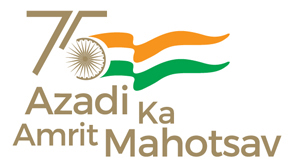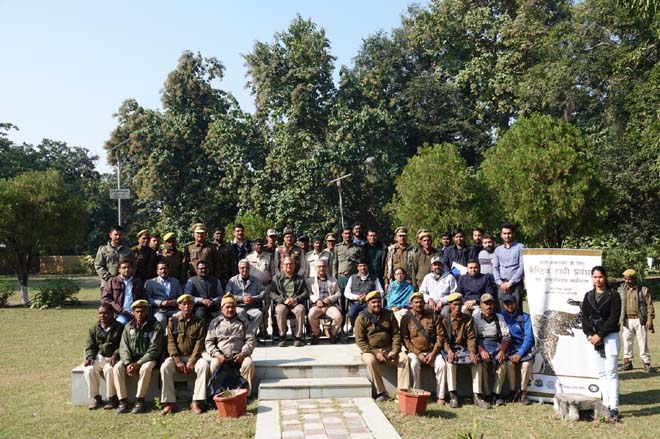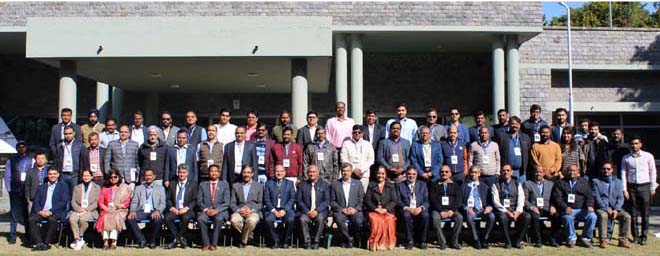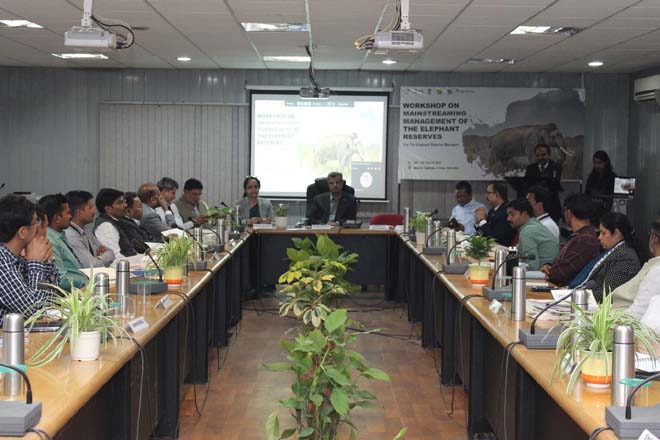Trainings and Workshops : 2022-2023
|
Orientation Workshop on Captive Elephant Management for Elephant Handlers 3rd – 5th December 2022 at Dudhwa National Park, Uttar Pradesh India has over 2757 captive elephants across 26 States maintained in elephant camps and rescue centres of the state forest departments; zoological parks, and under private ownership and possess the same legal status as wild elephants as per the Wildlife (Protection) Act, 1972. Captive elephant welfare and their management is one of the stated objectives of the Project Elephant, Ministry of Environment, Forest & Climate Change, Govt. of India. The role of captive elephants in rescue operations, managing human–elephant conflict situations, animal capture and translocation, patrolling in remote and difficult forest terrains etc. cannot be undermined. Captive elephants are maintained by both government and private agencies. Most of the government owned elephants occur either in forest camps or in zoological parks. Privately owned elephants occur in a variety of places and settings and proves to be way more difficult to monitor and regulate to improve upon elephant welfare. Elephant handlers train, nourish, maintain and utilize elephants in captivity. Thus, elephant handlers are the guardians of elephants. It is seldom possible to maintain captive elephants without trained and dedicated elephant handlers. It is certain that without well-trained mahouts and elephant handlers, captive elephant management would become a huge challenge. Thus, the situation calls for reviving good mahoutry, and developing passionate and knowledgeable band of elephant handlers. Since the inception of Project Elephant by Government of India during 1992, there has always been an impetus to document best practices in managing captive elephants with emphasis for providing appropriate veterinary care. Considering this, Project Elephant, the Elephant Cell at Wildlife Institute of India and Uttar Pradesh Forest Department conducted a three-day residential workshop at Dudhwa Tiger Reserve in Uttar Pradesh during December 2022. A total of 30 elephant handlers and mahouts participated in the workshop and found the initiative extremely useful.
|
|
“Minimizing Elephant Mortalities on Railway Track” for Officials of Indian Railways at Wildlife Institute of India on 01st – 03rd February 2023 India is a rapidly developing country, and our railway system is an integral part of that growth and expansion. However, with this progress comes the challenge of preserving our precious wildlife, particularly the Indian elephant, which is an emblem of our rich heritage and culture. The sad reality is that elephant-train collisions have become increasingly frequent in recent years, causing harm to both the elephants' and human lives. It is imperative to take a collaborative approach to tackle this problem and ensure the long-term survival of these magnificent creatures. To reduce the impact of railways on our wildlife, it is important to build the capacity of our railway sector by sensitizing railway officials towards India's rich biodiversity and the various mitigation options available to avoid human-wildlife conflict and accidents. In this regard, the Project Elephant Division of MoEF&CC and Elephant Cell, Wildlife Institute of India organized a three-day capacity-building workshop on Minimizing Elephant Mortalities on Railway Tracks for Officials of Indian Railways. As the Workshop's chief guest, Sh. S.P. Yadav, Director General of the MoEFCC's tiger, elephant, and forest conservation projects, emphasized the importance of striking a balance between conservation and development for our country's sustainable growth. He emphasized how it has been challenging to give straightforward and clear recommendations for mitigating railway-wildlife accidents until now due to the lack of capacity building for the railway sector. Shri Arun Kumar Khandelwal, Principal Executive Director, Gati Shakti, Railway Board, reiterated the Indian Railways' dedication to integrating environmental concerns with its growth initiatives. Sh. Virendra Tiwari, Director, WII, said that the outcome of the program would help guide responsible railway development in consonance with the conservation of elephants and other wildlife in India. Total of 41 officials from various railways departments and training institutes participated in this capacity-building workshop.
|
|
“Mainstreaming management of the Elephant Reserves” for the Elephant Reserve Managers at Wildlife Institute of India on 20th – 22nd March 2023 The workshop was organized by Wildlife Institute of India under the aegis of Project Elephant Division, MoEFCC at Dehradun. This workshop was aimed to mainstream Elephant Reserves with wildlife management and also standardizing elephant specific management requirements for the improvement of habitat and populations. It also aimed in bringing elephant reserve management across the country together to deliberate on range of topics relevant to elephant conservation and management including aspects of human elephant conflict. The workshop was attended by 15 officers working with the state forest departments of states that included Jharkhand, Karnataka, Chhattisgarh, Uttar Pradesh and Uttarakhand. The participants opined that the workshop was effective in enhancing their understanding and provided an opportunity for them to diversify their skill and gain knowledge proficiency in management of the Elephant Reserves.
|
Last Updated: November 9, 2023












